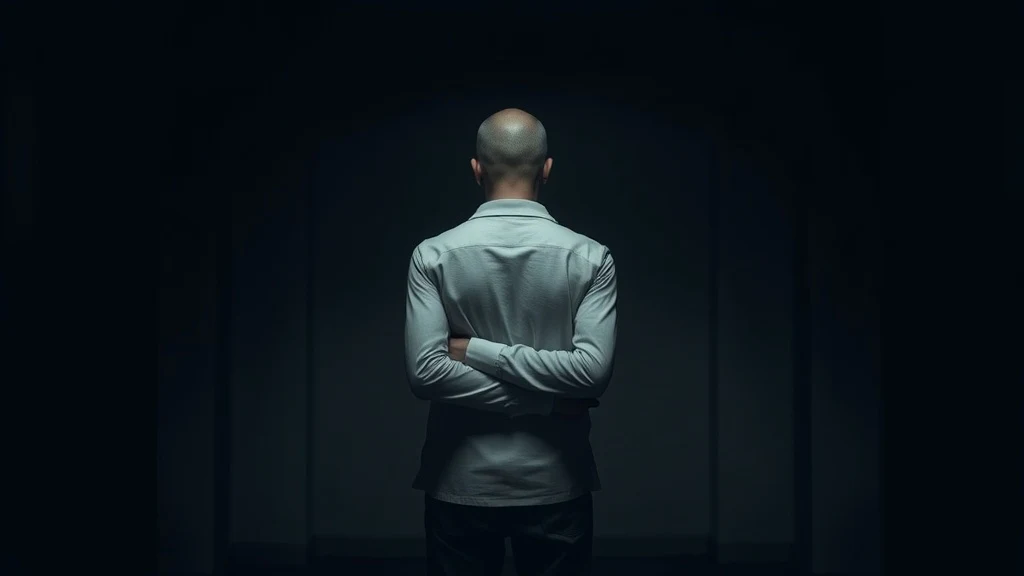4 Types of People Who May Dream of Faceless People
Want a Personalized Dream Interpretation?
Curious about how people like you interpret this dream symbol? Explore personalized interpretations tailored to your demographic. Get personalized insights for free!
Get Free Interpretation Now →Table of Contents
1. Age and Gender
Young Children:
Faceless people in dreams of young children often symbolize fear or anxiety. The lack of features may represent the child's inability to fully understand or identify the source of their unease.
Teenagers:
For teenagers, faceless people can reflect feelings of isolation or anonymity. They may feel like they are not being seen or understood by others, leading to a feeling of detachment.
Adults:
In adults, faceless people can symbolize a lack of identity or purpose. The absence of a face may represent a sense of emptiness or confusion about their life's direction.
Women:
For women, faceless people can evoke feelings of vulnerability or being overlooked. The lack of a face may represent the suppression or erasure of their identity or experiences.
Men:
In men, faceless people can symbolize a disconnect from their emotions or a fear of expressing their true selves. The lack of features may represent a suppression of their vulnerability or sensitivity.
2. Personality Traits and Mental Health
Personality Traits

Individuals with introverted or private personalities may encounter faceless people in their dreams as a reflection of their guarded nature. They tend to keep their thoughts and emotions concealed, making it challenging for others to truly know them. The faceless individuals symbolize the walls they build around themselves to protect their vulnerability.
Mental Health
For those struggling with mental health issues, such as anxiety or depression, faceless people in dreams can represent feelings of isolation and disconnection. The lack of facial features reflects their struggles with self-identity and their inability to connect with others. These dreams may evoke feelings of loneliness, worthlessness, and a sense of being invisible.
In some cases, faceless people can also symbolize repressed memories or unresolved trauma. The dreamer may feel as though their past is haunting them, but they are unable to fully confront it or give it a face. These dreams can be especially distressing and may require professional guidance to process and heal.
3. Culture and Religion
The interpretation of dreams involving faceless people can vary depending on the cultural and religious beliefs of the dreamer.
-
Western Culture: In Western societies, faceless people in dreams may symbolize anonymity, mystery, or a lack of identity. They could represent the dreamer's fears of losing their individuality or being lost in a crowd.
-
Eastern Cultures: In Eastern cultures, such as Buddhism and Hinduism, facelessness can be associated with spiritual enlightenment. It may symbolize the shedding of earthly attachments and the attainment of a higher consciousness.
-
Islam: In Islamic dream interpretation, faceless people can be a sign of the unseen world or the presence of supernatural beings. They may also represent the dreamer's connection to God and the presence of divine guidance.
-
Judaism: In Jewish tradition, dreams of faceless people can be interpreted as a sign of mystery or hidden knowledge. They may represent the dreamer's search for truth or their connection to the Divine.
-
Christianity: In Christianity, faceless people in dreams may symbolize the mystery of God or the need for the dreamer to seek guidance from a higher power. They can also represent the dreamer's fears of judgment or their own mortality.
4. Life Experiences and Trauma
Faceless individuals in dreams can be profoundly unsettling for those who have endured trauma. They may symbolize a sense of anonymity and powerlessness experienced during traumatic events. The faceless figures can embody the perpetrator's lack of accountability or the victim's inability to identify or confront their abuser.
These dreams can also reflect feelings of isolation and loneliness following trauma. The absence of faces suggests a lack of connection and empathy from others. They may intensify feelings of mistrust and vulnerability, particularly if the trauma involved betrayal or violation of trust.
Furthermore, faceless people in dreams can be manifestations of unresolved emotions or repressed memories. The lack of identity allows the dreamer to avoid confronting the painful aspects of their past. These dreams can serve as opportunities for exploration and integration of traumatic experiences.
Back to interpretation of faceless people

